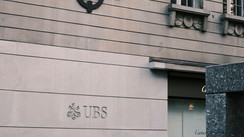Unexpected Drop in German Inflation
Germany's inflation dipped to 3.1% in January, a bit more than anticipated, according to initial data released on Wednesday from the federal statistics office. A decline in energy prices considerably contributed to this easing inflation.
In December, the year-on-year increase of German consumer prices, adjusted to be in line with other European Union (EU) nations, was 3.8%.
Speculations To Rise Over ECB's Interest-Rate Cuts
ING's global macro chief Carsten Brzeski commented that the decline in German inflation might increase expectations about a premature rate cut by the European Central Bank (ECB). He continued, "However, despite an encouraging headline inflation, there remain sufficient price pressure points that warrant concern."
Economists often closely scrutinize data of this nature, considering Germany and France reveal their figures ahead of the anticipated Eurozone inflation statistics on Thursday.
French Inflation Sees Decline As Well
In comparison, French data presented a decline in EU-adjusted inflation to 3.4% in January from 4.1% in December. "'Whether this will lead to tomorrow's aggregate metrics falling below the 2.8% consensus outlook is uncertain,' Mateusz Urban, Senior Economist at Oxford Economics informed, referring to German and French inflation numbers."
Euro Zone Inflation Expected to Dip
As per the consensus of economists polled by Reuters, the Eurozone inflation is expected to show a marginal decrease to 2.8% in January, from 2.9% the preceding month.
"We are now confident that we have kept the inflation monster in check," Joachim Nagel, a policymaker at the ECB, affirmed on Tuesday.
Prospect of ECB Rate Cut in the Spring
The ECB achieved a record by raising interest rates the most in the history of the euro to curb inflation from entering double digits. Now, the Bank is speculated to commence a reduction in borrowing costs come spring.
Andrew Kenningham, Oxford Economics' Chief Europe Economist, opined that while there remains one more inflation announcement before the ECB’s March meeting, the statistics for January instill increased confidence in their projection that the first rate cut will happen in April.
Energy Prices Shape German Inflation
The element steering the slump in German inflation was energy prices, which were 2.8% less than the same period the previous year, even accounting for the termination of a government initiative that fixed energy prices and the initiation of an increased carbon price.
Core Inflation Remains Stable
January saw a slight dip in core inflation, excluding unpredictable food and energy prices, to 3.4% from 3.5% the prior month. "The significant rise in wages will continue to escalate service prices and therefore guarantee that underlying inflation remains above the ECB's 2% target," stated Commerzbank's economist Ralph Solveen, who anticipates the first rate cut to occur in June.





